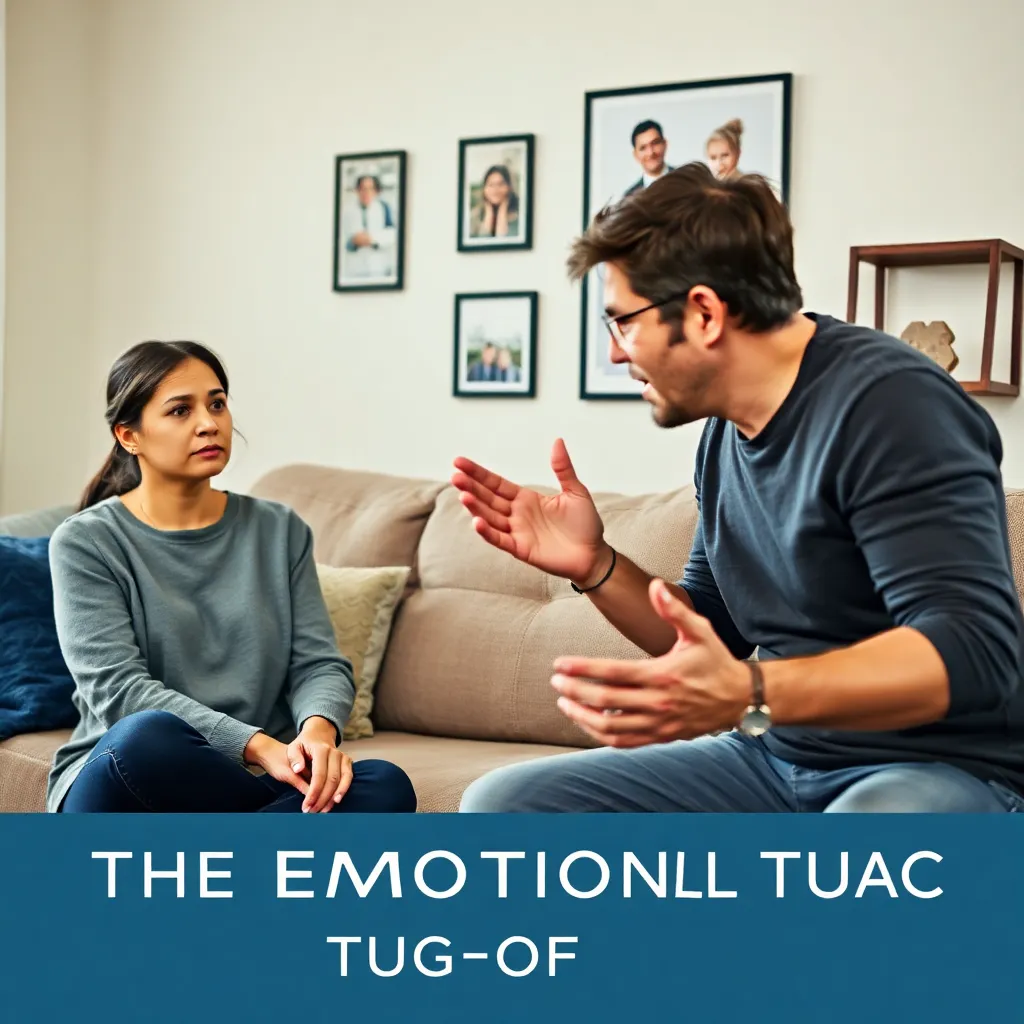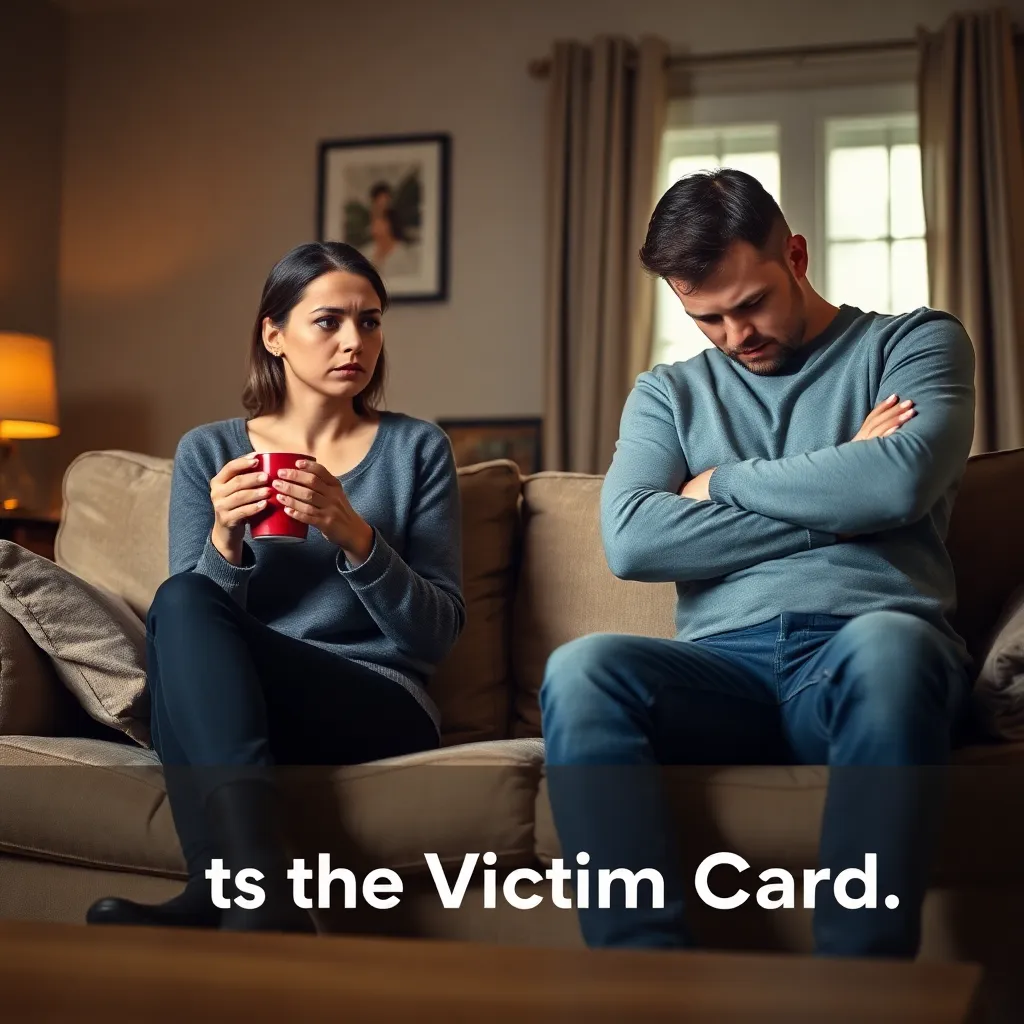Navigating a relationship with someone who exhibits narcissistic tendencies can feel like an emotional roller coaster, leaving you bewildered and drained. You may find yourself constantly questioning your own reality when they inexplicably assume the role of the victim, turning situations on their head and leaving you in a swirl of confusion. Understanding why narcissists often play the victim card is crucial, not just for your peace of mind but for reclaiming your emotional space and clarity. By exploring the motivations and behaviors behind this pattern, you can start to regain your footing and protect yourself from the emotional turmoil it often brings.
At first glance, it may seem perplexing how someone so self-assured and dominant could position themselves as the one wronged. However, this tactic is a surprisingly common feature of narcissistic behavior, serving as a tool to manipulate perception and shift blame. In this article, you will uncover the psychological underpinnings that drive this behavior, gaining insights into the complex dynamics at play. As you learn to recognize these patterns, you’ll be better equipped to set boundaries and engage more effectively, fostering healthier interactions.
Our aim is to provide you with practical, realistic guidance that resonates with your experiences and helps you navigate these challenging dynamics with confidence. We understand the emotional toll that such relationships can take, and we are here to support you with empathy and knowledge. By the end of this exploration, you will have a clearer understanding of why narcissists resort to playing the victim and how you can respond in ways that protect your well-being. Let us journey together toward clarity and empowerment, offering you the tools to transform your relational landscape.
1. Understanding Narcissistic Behavior Patterns

To understand why narcissists often play the victim card, it’s essential to recognize their distinct behavior patterns. Narcissists frequently exhibit a strong need for validation and admiration, which can lead them to manipulate situations to maintain a favorable self-image.
In many relationships, a narcissist might twist situations to make themselves appear as the aggrieved party. For example, if confronted about their behavior, they may deflect criticism by portraying themselves as misunderstood or wronged.
Experts suggest that this victim mentality stems from a deep-seated fear of vulnerability and a fragile self-esteem. By playing the victim, narcissists can elicit sympathy and avoid taking responsibility for their actions.
Understanding these patterns can empower partners to respond more effectively in their interactions. It’s crucial to maintain boundaries and not get drawn into their distorted narratives.
Though challenging, recognizing these behaviors is the first step towards healthier relationship dynamics. By maintaining awareness and setting clear limits, one can interact more constructively and protect their emotional well-being.
2. The Victim Card Explained

When a narcissist plays the victim card, they are attempting to redirect attention and sympathy towards themselves. This tactic often leaves their partners feeling confused and guilty for situations that were not their fault.
Imagine a scenario where a partner innocently questions a narcissist’s behavior, only to be met with tears and accusations of being too harsh. This strategic move shifts the narrative, making the narcissist appear as the one who is wronged or misunderstood.
In these instances, the narcissist might bring up past grievances, even if unrelated, to bolster their position as the victim. By doing so, they can manipulate the emotional dynamics of the relationship, ensuring they remain in control.
Acknowledging this tactic is crucial for maintaining emotional health in a relationship. If you recognize this pattern, consider setting clear boundaries and communicating openly about your feelings.
Ultimately, understanding the victim card strategy can help partners respond more effectively, preserving their own sense of well-being. This awareness is a powerful tool in fostering healthier relationship dynamics.
3. Psychological Motivations Behind Victimhood

The **psychological motivations** for narcissists playing the victim card often stem from a deep-seated need for **control and attention**. By portraying themselves as the victim, they can manipulate others into providing the **sympathy and support** they crave, redirecting focus from their own shortcomings.
In many cases, this behavior is rooted in a **fear of accountability**. When confronted with their actions, narcissists may quickly shift the narrative to paint themselves as the wronged party, thereby avoiding **responsibility** and preserving their fragile self-image. This might look like a partner who always blames external factors or other people when things go wrong, rather than acknowledging their role in the situation.
**Experts suggest** that this tactic also allows narcissists to maintain a sense of **superiority**. By adopting the victim role, they can subtly imply that they are above reproach, encouraging others to rally around them and validate their distorted view of reality. This is especially common in relationships where one partner consistently shifts blame, creating a cycle of confusion and emotional manipulation for the other.
It’s important to **recognize** these patterns and address them with **clear communication** and boundaries. If you find yourself in such a dynamic, consider seeking guidance from a **trusted therapist** or counselor who can help you navigate these complexities and maintain your emotional well-being. Confronting the issue directly and setting firm limits can help break the cycle and foster healthier interactions.
Ultimately, understanding these psychological motivations can empower you to respond with **empathy and strength**. By recognizing the underlying needs driving this behavior, you can make informed choices about how to protect your own well-being while interacting with others.
4. Impact on Relationships and Partners

In relationships with a narcissist, partners often find themselves shouldering an unexpected emotional burden. This dynamic can lead to a constant state of confusion as they try to navigate the narcissist’s shifting portrayal of victimhood and blame. Understanding the impact on relationships can be crucial for those involved.
Frequently, a narcissist’s partner might feel an overwhelming sense of guilt and responsibility for the narcissist’s perceived suffering. This can lead to situations where partners constantly walk on eggshells, attempting to avoid triggering the narcissist’s victimhood narrative. In a real-world scenario, a partner might refrain from expressing their own needs, fearing it could upset the delicate balance.
Experts suggest that this behavior often leads to emotional exhaustion for the partner. As they strive to placate the narcissist, their own emotional needs often go unmet, leaving them feeling drained and unfulfilled. Over time, this can result in the partner losing their sense of self-worth and identity.
An important step for partners is to recognize these patterns and establish healthy boundaries. It is essential to communicate openly and assertively, ensuring both partners’ needs are acknowledged and respected. Seeking support from a therapist can also provide valuable insights and strategies to cope with these challenges.
5. Strategies to Handle Victim Narratives

In relationships with narcissists, it is crucial to recognize when they are playing the victim card, as this can often lead to confusion and guilt. For instance, if a partner frequently shifts blame to you during disagreements, it is important to understand that this might be a manipulation tactic rather than a genuine reflection of the situation.
One effective strategy is to set clear boundaries and communicate them firmly. By letting your partner know what behaviors are unacceptable, and sticking to those boundaries, you create a healthier dynamic where manipulation has less power.
Another approach is to engage in active listening to distinguish between genuine concerns and manipulation. This involves listening empathetically but also critically, so you can identify when the narrative is being skewed to gain sympathy or avoid accountability.
When dealing with victim narratives, it can be helpful to seek external support from friends, family, or a therapist. They can offer objective perspectives and emotional reinforcement, helping you maintain a balanced view of the situation.
Ultimately, it is vital to remember that you are not responsible for fixing or changing the narcissist’s behavior. Your focus should be on maintaining your own emotional health and setting a foundation for healthier interactions. By employing these strategies, you empower yourself to navigate the complexities of such relationships more effectively.
Conclusion: Creating Beautiful Outdoor Spaces
In understanding why narcissists often play the victim card, we delved into five key relationship concepts: the manipulative art of gaslighting, the projection of insecurities, the strategic use of empathy to control, the dynamics of power imbalances, and the importance of setting boundaries. These insights unravel the complex behaviors of narcissists and highlight the significance of self-awareness and resilience in maintaining healthy relationships.
As an immediate step, consider reflecting on your current relationships to identify any signs of these patterns and think about ways to establish firmer boundaries. This proactive approach can safeguard your emotional well-being and promote more balanced interactions.
Remember, knowledge is power. Save or bookmark this article now to revisit these insights and strategies when you need a refresher. By keeping this resource handy, you equip yourself with the tools to navigate challenging relationships with confidence and clarity.
Looking ahead, embracing these concepts can pave the way for more fulfilling connections rooted in mutual respect and understanding. Together, let’s strive towards relationship success, armed with the knowledge and courage to foster genuine, supportive partnerships.
